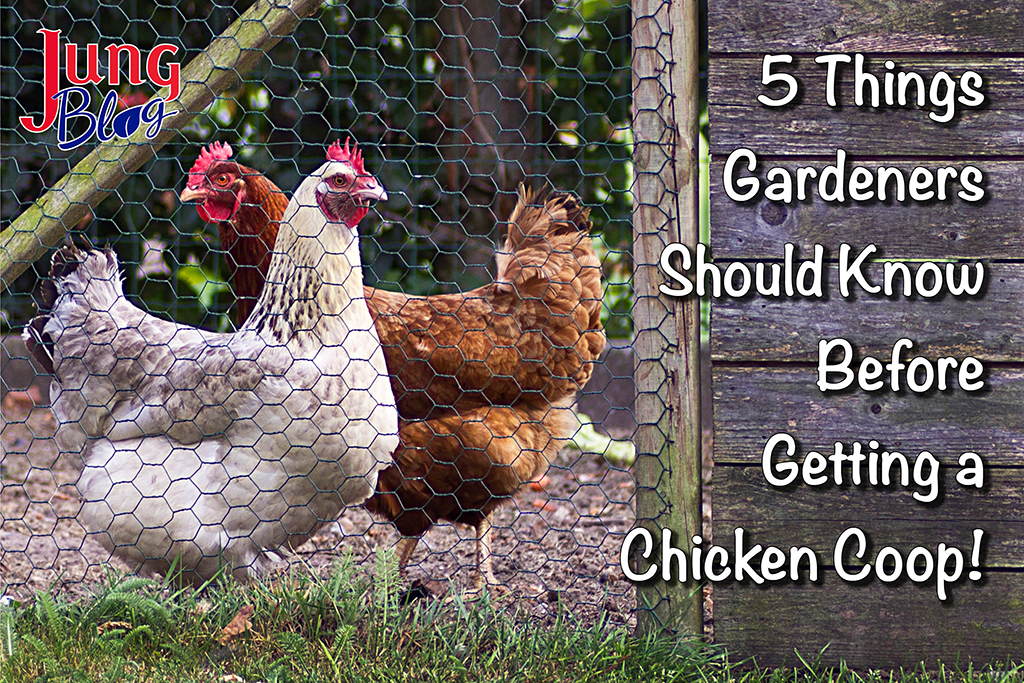
Go behind the hype and find out the good, the bad, and the ugly about using chickens to help manage your garden. Learn how to get the good without all the rest!
In this article, we discuss how helpful chickens really are as pest control and fertilizer producers for a household vegetable garden. You’ll also learn the most effective strategies for managing your birds without harming your garden plants, and for growing your garden without harming your hens.
My parents had me crawling around the garden before I could walk, and I was busy seeding, weeding, and harvesting by the time I was five. It was only natural, then, when I got my first coop as an adult, that I wanted to combine the two hobbies. Even though most people dream of getting chickens that lay lots of eggs, a flock can also be hugely beneficial to your garden, and fresh greens and veggies from a garden can be great for your birds. Read on to find out the pros and cons of having chickens in a garden, and the best ways to make it helpful for everyone.
Pest Control
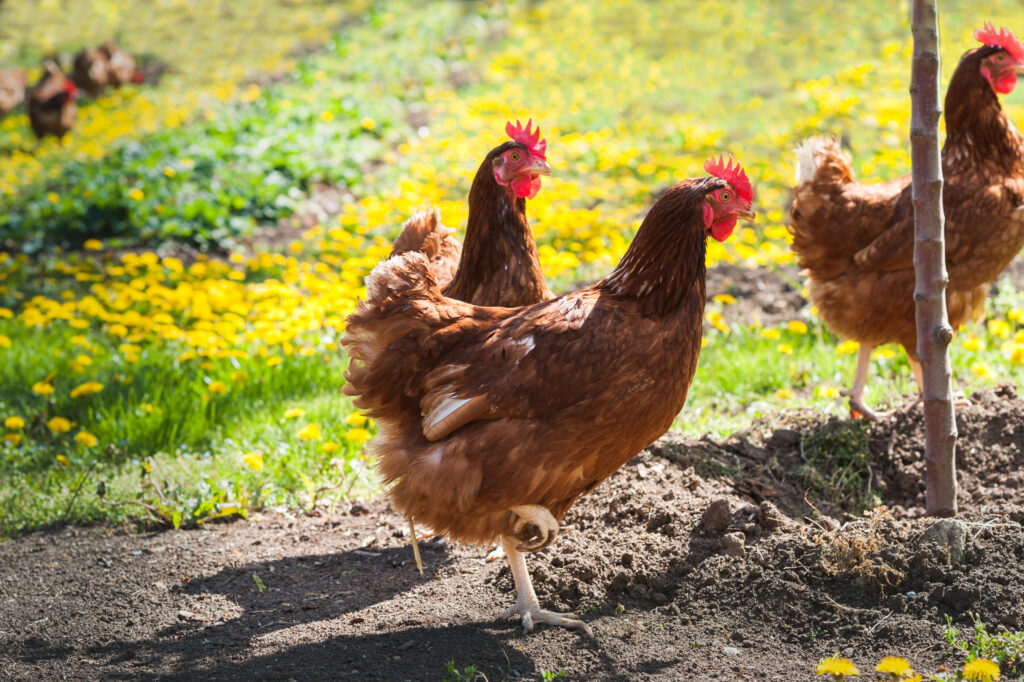
Chickens can be effective but indiscriminate pest control. Chickens love to eat grasshoppers, beetles, and other pests that can wreak havoc on the plants in a vegetable garden. This is especially true if you have free-range chickens that aren’t getting totally filled up on pellet feed every day; these birds will be hungry enough to make a serious dent in your garden’s insect population. However, it’s also important to keep in mind that chickens don’t know the difference between a harmful potato beetle and a beneficial ladybug; they will eat both with equal enthusiasm. A garden managed by poultry pest control will have fewer grasshoppers, beetles, and slugs, but it will also have fewer ladybugs, earthworms, and other helpful insects that gardeners want around. This is the problem with introducing almost any type of animal as “natural” pest control; unless they have a highly specialized diet, as some insects do, they will decimate all of your bugs, whether you want them or not. If you have a major infestation of harmful insects, though, it’s worth considering.
Fertilizer
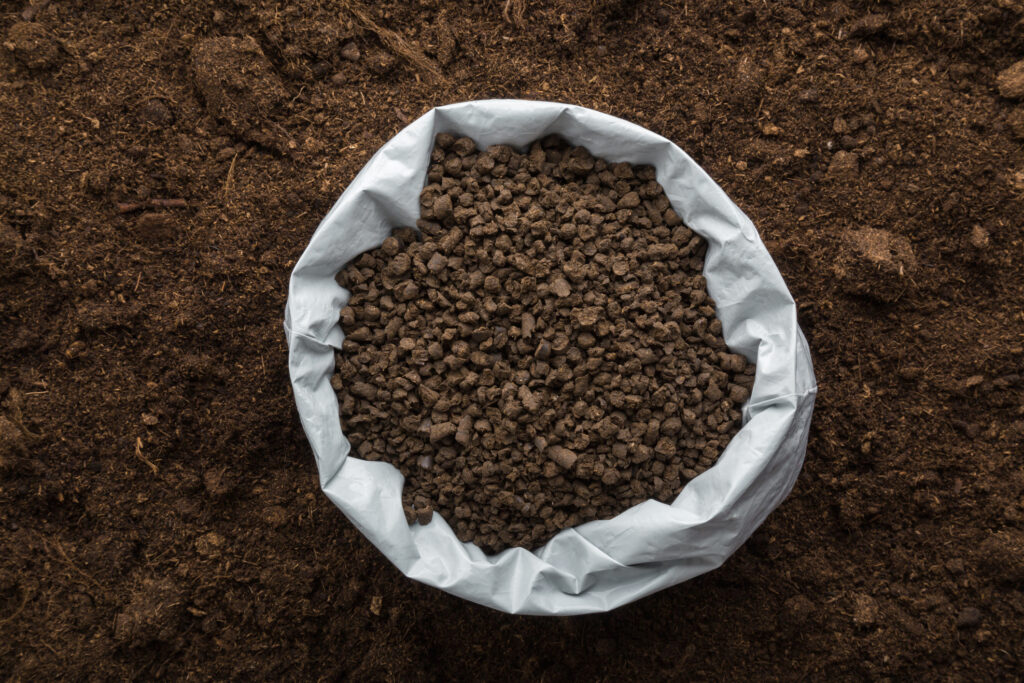
Chicken waste makes a nitrogen-rich fertilizer, which is one of the most important nutrients that many plants need to grow. Most plants will not require additional nitrogen in healthy soil, but your soil may be nitrogen deficient. Plants like corn can deplete your soil of nitrogen very quickly and make it difficult for other plants to grow there later. Signs of nitrogen-deficient plants include yellowing leaves and later, smaller fruit. Chicken feces make a good quick-fix fertilizer for nitrogen-depleted soil, or for plants like rose bushes and fruit trees that require extra nitrogen. Even if you do not want to let your hens roam in your garden, you can collect their poop from the coop and use that in your garden.
Location
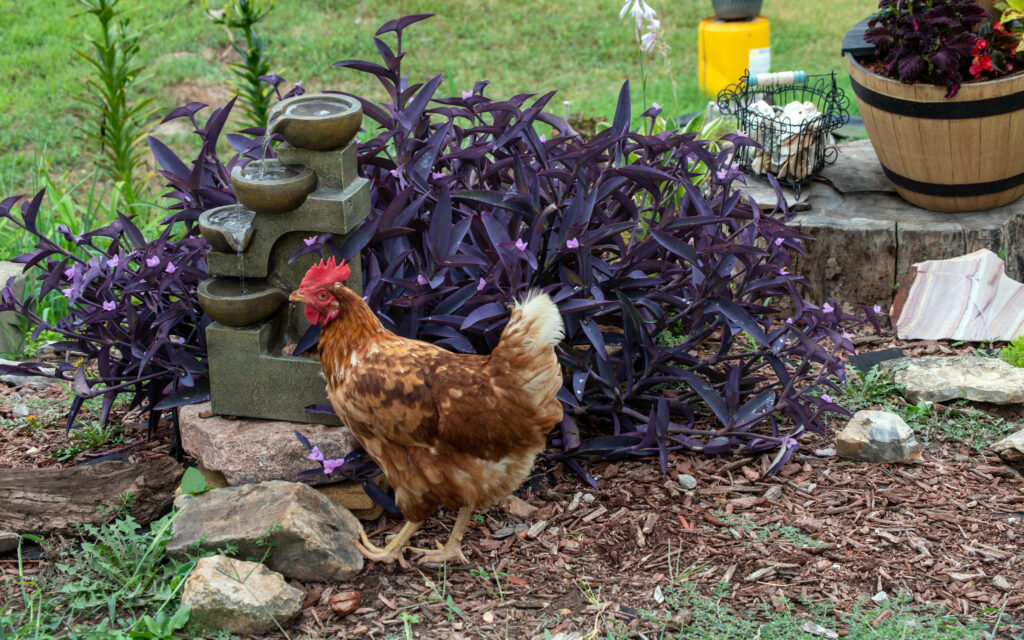
Where you place your coop in relation to your garden will depend in part on whether your chickens stay in a run or free-range. For birds in a run, being right next to a chicken-friendly section of the garden is ideal, as they can sample from your plants without decimating your harvest. For free rangers, I recommend putting the coop further away from the garden and growing only chicken-friendly plants around the edge, where they can reach them through the fence.
Plants
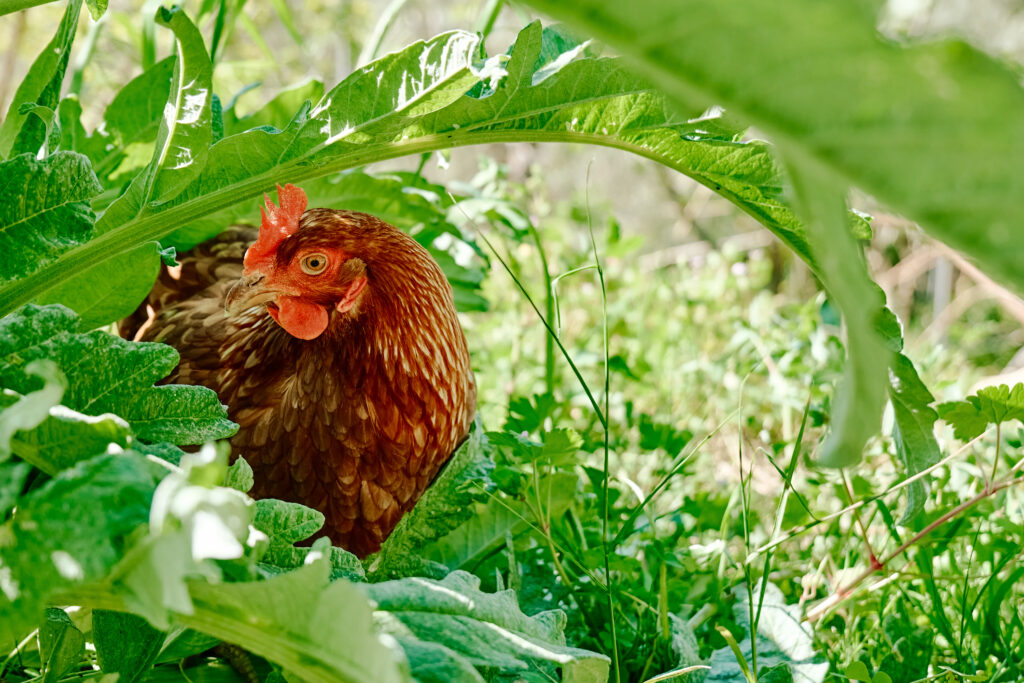
In general, chickens love the same plants that we do; tomatoes, asparagus, berries, and sunflowers are all favorites. Unlike many animals, they also love alliums like garlic and onions. They can even help out by ridding your garden of less desirable plants like dandelions and clover. Planting these plants in and around your chicken coop can help give your girls a varied diet, which will keep them both happier and healthier than one of straight-layer feed.
However, many plants that are common in backyards and gardens and seem harmless to us can actually be deadly to chickens and other animals. Which wild plants you need to watch out for will depend on your region and location, but common offenders cultivated in gardens include azaleas, tulips, iris, and ornamental lantana. If you do grow these plants, keep them far away from the coop and be sure to fence them off from free-ranging birds.
Protection
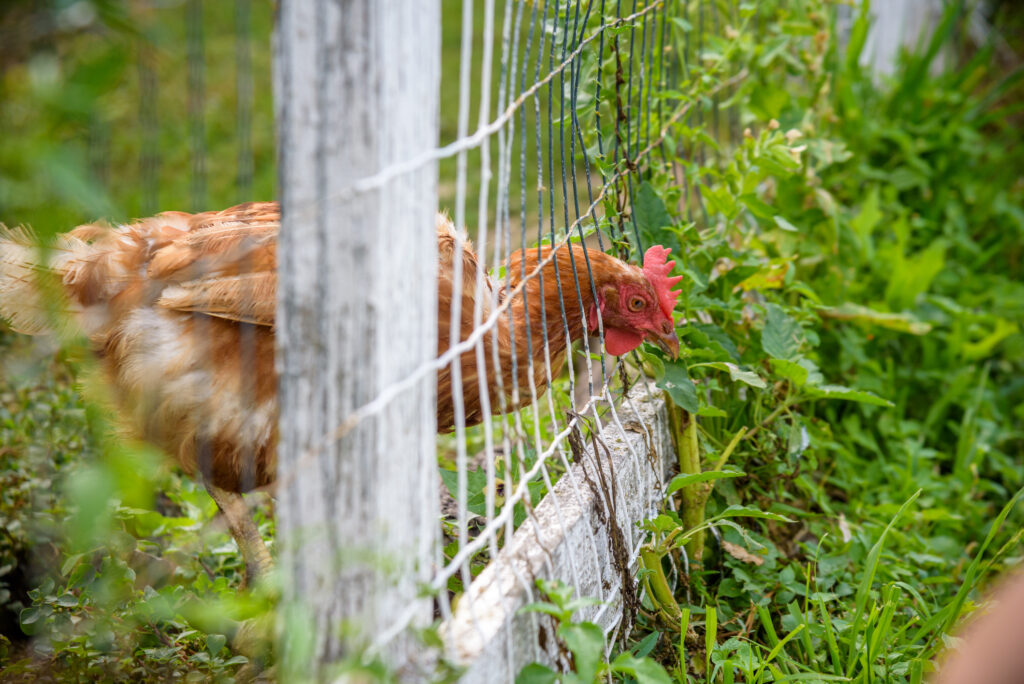
Unsupervised chickens can be highly destructive to a garden. Chickens foraging for food love to scratch, peck, and generally dig up the ground around them in the hunt for insects. In the process, they’re likely to dig up some of your seeds, which they will eat, or uproot your plants. They like leaves, flowers, and vegetables, and have no sense of moderation. A flock of hens will strip your harvest indiscriminately, and then go have a dust bath that will leave a foot-wide circle of upturned soil and crushing plants. The time your hens have in your garden should be limited and supervised.
There are two ideal times of year to let your hens roam the beds. The first is during winter when your beds are not planted or covered. During this small window on either side of the frost, your chickens can eat up any leftover plant pieces and newly-established bugs, and they can also provide some fertilization. The second good time for chickens in the garden is right before the plants start fruiting, once they’re big enough not to be uprooted or crushed. Fencing will be crucial to keep your free-ranging hens out of your garden, as will giving them enough space to roam and find food elsewhere.

Keeping chickens in the garden can be frustrating, but if done correctly, it can also be healthy, rewarding, and lots of fun!
Other Recommended Reading

- Gardening With Chickens – Why Chickens And Gardens Just Make Sense
- Six Tips To Create The Perfect Dog-Friendly Garden
- Pet-Friendly Plants & Landscaping For All Seasons
- How To Create A Bird-Friendly Garden
- 7 Tips To Attracting Reptiles, Toads, & Frogs To Your Garden
- Complete Guide To Lizards, Frogs, & Toads In The Garden

At Jung Seed Co, we strive to be your go-to guide for all your gardening needs. Our YouTube channel Jung Garden Center now includes our new video series All Things Green where our experts provide gardening tips for all levels of gardeners. When you need reliable gardening advice, turn to the trusted experts at Jung.
View our new catalog online or browse our website for all of your gardening favorites. To receive info on new products, exclusive deals, and specials, be sure to sign up for our weekly email. Join our Facebook page, to discuss all things gardening!
About the Author: If you are interested in writing an article for the Jung Blog, email us at – info@jungseed.com.